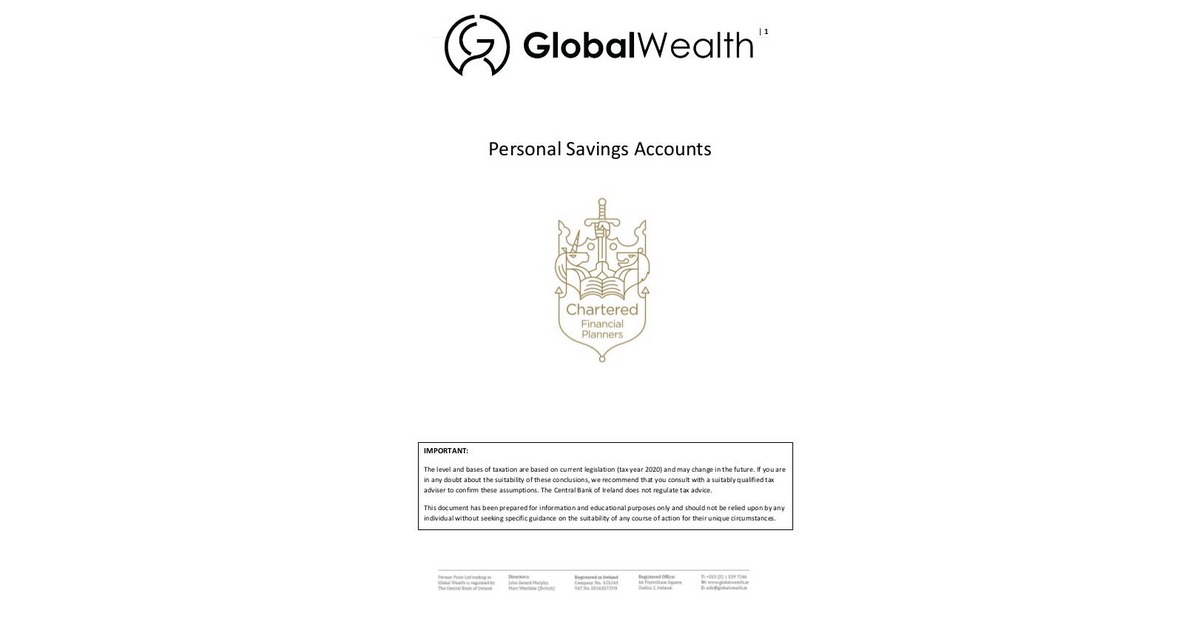Hi, I'm wondering does the (Irish domiciled) ETF Exit tax of 41% on gains and income count if they are bought in a PRSA?
i.e. I set up a self-directed PRSA and buy ETFs. I no longer pay 41% exit tax as these ETFs are now part of my PRSA, which has different rules.
Or is that too good to be true?
For a PRSA, your assets grow free of both capital gains tax and income tax. You then pay Income tax, PAYE and PRSI on withdrawls less 25% tax free lump sum.
If your retirement income will not pass the threshold to pay 40% income tax, then buying ETFs via PRSA would seem more efficient.
You would also avoid the 8 year deeemed disposal.
i.e. I set up a self-directed PRSA and buy ETFs. I no longer pay 41% exit tax as these ETFs are now part of my PRSA, which has different rules.
Or is that too good to be true?
For a PRSA, your assets grow free of both capital gains tax and income tax. You then pay Income tax, PAYE and PRSI on withdrawls less 25% tax free lump sum.
If your retirement income will not pass the threshold to pay 40% income tax, then buying ETFs via PRSA would seem more efficient.
You would also avoid the 8 year deeemed disposal.
